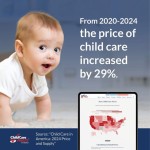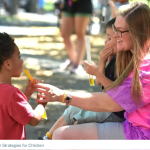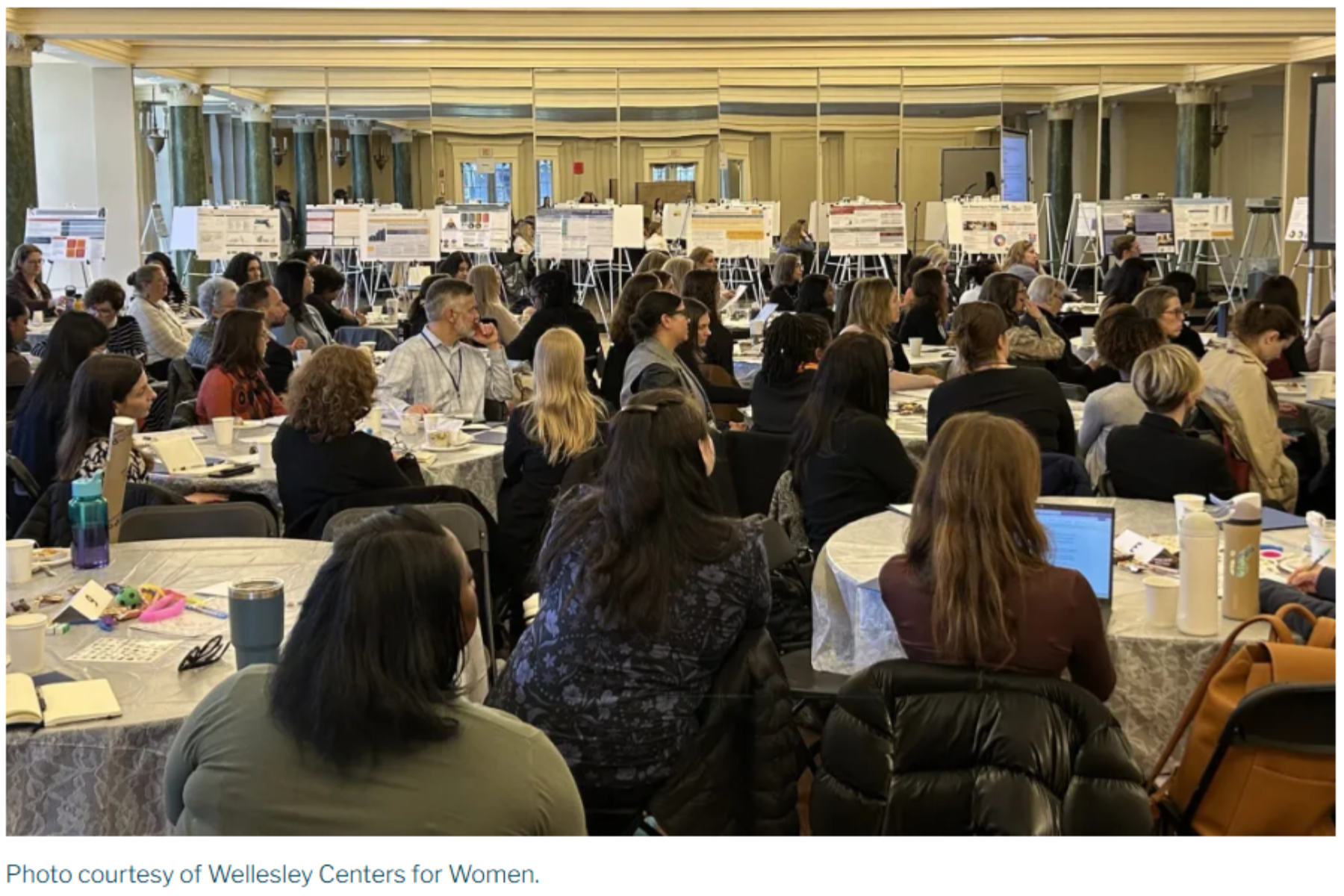Last month’s inaugural Early Childhood Policy Research Summit broke new ground in Massachusetts by uniting legislators, researchers, advocates, and early educators from across the state in an exciting meeting at Wellesley College.
Now organizers and participants are thinking about next steps.
For Northeastern Professor Kim Lucas, a summit organizer, the story of the summit begins in 2020 in the early days of the pandemic.
“A lot of people had the idea for a summit for a lot of reasons,” Lucas recalls. “My reason for wanting one was noticing during The 9:30 Call that we didn’t have the information we needed about the field. As a result, everyone was doing a survey to learn more. Early educators must have filled out a gazillion surveys, but no one was coordinating these efforts.”
A guiding theme of the summit was collaboration. So instead of one host, the summit had three—Lucas at Northeastern University School of Public Policy and Urban Affairs, Wendy Wagner Robeson at Wellesley Centers for Women, and Kyle DeMeo Cook at Boston University Wheelock College of Education & Human Development. The event was also supported by Health Resources in Action. Mo Barbosa served as the facilitator. And State Representative Alice Peisch spoke at the summit, welcoming the opportunity to learn policy lessons from all the research being shared.
The summit featured 28 research posters, including the work of academics, research centers, graduate students, family child care providers, and center directors.
“We put out a call for posters that had to meet three criteria,” Robeson, a senior research scientist at the Wellesley Centers for Women and a summit organizer, says. “The research had to focus on early childhood. There had to be a policy implication. And it had to have a Massachusetts focus. We received posters about urban development, medicine, education, public schools. It was wide open. That’s what made it so wonderful.”
Lucas explains the value of having a diverse research base, noting:
“I come from a tradition of civic research, which is based on the idea that everyone has an expertise, and to get things done, all of the expertise needs to be at the table. One example is Edna Cabral who belongs to a group of family child care [FCC] providers whose poster was accepted. I don’t think they would consider themselves researchers, first and foremost because they are family child care entrepreneurs. But they did work on the FCC workforce that I think would be recognized as pretty traditional research.
“I’ve had conversations with Edna about how their group was able to get such a high response rate. I can’t remember research projects getting hundreds of responses from family child care providers. It’s because Edna and her group are trusted sources; and I’m not that. So I need her to be part of these conversations, as someone who can get that work done and do it well.”
Another victory was the diversity of attendees.
“Having all those people in the room with different roles and perspectives is such a big piece of this,” Kyle DeMeo Cook says. She’s a summit organizer and a research assistant professor at the Boston University Wheelock College of Education & Human Development, and she wrote an article about the summit.
“It’s so exciting that we also have students who want to be part of shaping next steps. We hope this work will help build the future of our field, so we’re making sure that there are early career people who are feeling supported and mentored, and that they are coming into a community, where they see themselves as potential leaders.”
A Wellesley Centers for Women article about the summit features Marisa Fear, Strategies for Children’s director of policy, who says in the piece, “We know there’s so much good work happening in Massachusetts… It’s a very well-resourced community, and at the same time, we don’t always talk to each other.”
What’s next?
More collaboration.
“This is just the beginning,” Robeson says. “At the end of the conference, we asked if people were interested in continuing, either working on a committee or in a leadership role or as a volunteer. Or maybe they just wanted to be informed about what we do. We’re going to come together to continue the work this summer. I think we want to create a safe space that people can come to with new ideas.”
Cook also sees a need for new partnerships.
“We have to ask the questions: How are we supporting researchers’ work and connecting them to policy efforts? For applied researchers who are trying to influence policy, are there supports and trainings that they need on connecting to policymakers and advocacy groups?”
Will there be a policy summit next year? People are excited about the possibility of one, but that decision will be made—and potentially implemented—by the group.
If you’re interested in learning more or getting involved, please contact Wendy Wagner Robeson at wrobeson@wellesley.edu.



